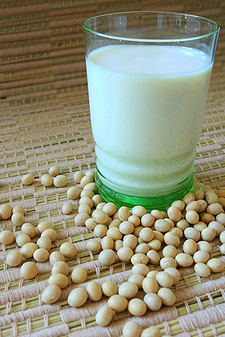Q&A with Mike Furci
08/18/2011
Furci Home / Fitness Channel / Bullz-Eye Home
 Mike,
Mike,
What a great column. It is nice to see someone who is very knowledgeable finally getting the truth out there about protein. Now here's my Q: I have discovered as of late I am lactose intolerant, and thus it is difficult -- at best -- to eat most dairy (including eggs, milk, cheese, etc.) and protein powders (aside from those protein powders made from soy). However, I have read your recent articles about soy's propensity to lower testosterone levels; the whole reason I was eating more protein to begin with! I finally thought that I had my answer with the soy protein powder too!
Being lactose intolerant, are there protein powders I can use, or am I forced to stick to always cooking some sort of meat to get my protein?
Thanks for the help,
Matt

 Matt,
Matt,
Have no fear. I am also lactose intolerant to a degree. There are plenty of protein powders out there that are lactose free. You just need a little education on what and where to buy. I would first start by reading my article, Protein Rx: A review. The protein I am currently using is my own blend made by Protein Factory. This is one of the best websites to purchase protein. Not only is it a site where you can create your own powder for a good price, it's a great site to educate yourself on protein in general. Beverly International also manufactures an excellent protein called Muscle Provider, although it is on the expensive side. Another good source of protein is lactose free 1 percent milk fat cottage cheese. Eggs, by the way, do not contain lactose and are an excellent source of protein.
I would also recommend getting lactase enzyme tablets. You can get them from any drugstore and are great when eating foods you think may bother you. They come in handy, especially when dining out. You can also use lactase enzyme drops in your milk: one to two drops in a gallon of milk overnight will virtually render it lactose free.
Mike
 Mike,
Mike,
Even though I don't follow all of your teaching and articles, I am long-time reader and have incorporated enough into my diet and life routine to justify saying I give you a lot of credence. However, I would like to point out that in your recent writings about testosterone and Cardiovascular Disease (CVD) that while there is definitely a high correlation between the two events, it does not mean cause and effect. Correlation does not equal cause and effect. I would point out that low testosterone levels and CVD can be caused by a couple of things – diet, lack of exercise and most of all, aging. Quit eating the poisons that are so prevalent and be active, and for the most part CVD/testosterone will probably be minimized/optimized, unless you have a medical condition. This will also help in “slowing” the aging process, or helping to grow old healthfully. If that was the point of the article, we agree.
Dave
 Dave,
Dave,
Arterial stiffness, hyperinsulinemia obesity, and hypertension are all very common among males who are hypogonadal. As the study authors conclude, not I, testosterone was the only hormone out of several that correlated with arterial stiffness. Arterial stiffness is a major risk factor for CVD. An inverse relationship with arterial stiffness and hypertension has been shown in several studies. And although exogenous testosterone alleviates several risk factors associated with CVD, researchers cannot say definitively that low test is a cause of CVD. However, the evidence is getting overwhelming, and many top researchers believe maintaining test at normal levels has a protective effect on arterial aging.
Diet and exercise had nothing to do with the authors' conclusions. Diet and exercise should not, and were not, included in the study. Reliable studies minimize variables as much as possible.
Your comments about diet, exercise and test levels sound logical, but are made out of ignorance. A healthy male with age-related hypogonadism will have no hormonal benefit to any degree with diet and exercise. This is indisputable. The degree to which human growth hormone, or any other hormone, is manipulated through diet and exercise has been measured many times in different studies and is infinitesimal.
A bad diet and lack of exercise definitely can cause diabetes and obesity. It has been shown that males with one or both of these problems have a much higher incidence of hypogonadism. In these instances, diet and exercise may have a positive effect on hormonal levels.
A lack of exercise and horrible eating habits are unfortunately here to stay in the United States. The food industry spends tens of millions of dollars on marketing and lobbying our government. Because of this, they are producing foods that are literally poisons, and are having horrible effects across our country. The best thing people can do is to stop buying these products and demand whole natural foods. This is a pipe dream however, because most people in this country don't care about eating correctly. Laziness, a lack of discipline, and a desire for instant gratification (comfort foods) are a major reason why people in this country are getting fatter.
Fortunately, there is a growing number of people like myself, and many Bullz-Eye.com readers and editors, who will pay extra and travel for whole natural foods. Consequently, there are a growing number of farms producing these types of foods. Whether this will become commonplace across the nation is anyone's guess.

 Hey,
Hey,
I was wondering if you could give me a workout routine that would help me gain 20 lbs in three months. I made a bet with a friend, and I really need some help. What kind of diet should I be on? Any other information would be helpful.
 I've got great news for you! Anyone can gain 20 lbs in three months. Just eat like most Americans. However, if gaining quality weight, meaning lean mass, is a stipulation of the bet, you're SOL. Not even on copious amounts of performance-enhancing drugs could even the most genetically gifted person gain 20 lbs of muscle in three months. If it were as easy as prescribing a routine and diet, I'd be a very wealthy man.
I've got great news for you! Anyone can gain 20 lbs in three months. Just eat like most Americans. However, if gaining quality weight, meaning lean mass, is a stipulation of the bet, you're SOL. Not even on copious amounts of performance-enhancing drugs could even the most genetically gifted person gain 20 lbs of muscle in three months. If it were as easy as prescribing a routine and diet, I'd be a very wealthy man.
 Mike,
Mike,
I liked your article, Everything in moderation, right? Most of the information in there was pretty good. Most, but not all. A lot of the stuff you got from the Mercola.com website is okay I guess, but a lot of it is also made up. Some of the things on fructose metabolism are just flat-out wrong, and contrary to a lot of biochemistry crap that I have to read in medical school. And yeah, his website also says M.D.s get no training in metabolism and nutrition in med school. That's flat out wrong too -- I've had to learn this crap since undergraduate school and they're making us relearn it again in med school. I mean, some of the information is true, but presented in a way that would make an uneducated reader jump to incorrect conclusions. Anyway, fructose isn't that bad. The crap is in table sugar too, and although it is converted to triglycerides and fats faster than glucose, it's only because it gets to skip a couple of metabolic steps. It ends up being converted the same way as most sugars. Bottom line, any sugar and calories you don't burn off through daily activity or exercise is going to be converted to fat.
I haven't had a chance to research the stuff on soy yet, but the parts of your article on trans fats and hydrogenated oils was pretty good. My guess is that up to half of that article is based on bogus science, or at least science that is misrepresented, which is pretty much bogus science if you ask me. Anyway, I gotta get back to studying.
Erik
 Erik,
Erik,
When you have the time to break away from the indoctrination of medical college, you can start truly educating yourself with Kaayla Daniels's book, "The Whole Soy Story." This country has been taken down a path of "misrepresentation" for decades, and two of the biggest contributors are the AMA and the FDA. You'd better start looking at who's contributing financially to schools across the country. The people teaching you, as well as the vast majority of practicing docs, haven't a clue when it comes to nutrition. Consider the classes you've taken, or are going to take, as training in metabolism and nutrition -- they are dismally deficient. Instead of regurgitating what you're told as the truth, start venturing out and really start to learn. The food and drug industries own the medical profession, who owns the medical schools. This problem is so pervasive and is doing so much harm, groups of docs with integrity are now starting to get together to try and change it.
The remarks you make about fructose prove my point. Anyone who would make the claims you do about fructose is making them out of ignorance. I do not blame you; this is the effect of big business on medicine and our educational institutions. Fructose just doesn't skip a few metabolic steps when compared to other sugars -- it takes a completely different pathway. There is a reason why fructose has such a low glycemic index. Fructose is metabolized in the liver, as opposed to being transformed to glucose like other sugars in the small intestines. The glucose is then shuttled in the blood and is used and stored.
I like the fact that you're skeptical. More people need to be. However, be skeptical across the board. It's obvious you need to start looking at sources that have no financial ties to the industries you defend. And by the way, you mention Mercola.com but none of the other citations ... interesting.
My article on trans fats and hydrogenated oils was OK? I suppose you think cholesterol causes heart disease? You are probably a good guy, but you are speaking about subjects with information you've been told. Like I said, stop regurgitating. It's people like you who become docs and continue this endless cycle of misinformation. This is not saying you're a bad person, but you're unknowingly perpetuating bad information. You've been warned.
You can follow us on Twitter and Facebook for content updates. Also, sign up for our email list for weekly updates and check us out on Google+ as well.













